Description
Abstract
Critical Analysis of the Excess Dividend Rule in Nigeria: Oando Plc v. FIRS (Oando IV) Revisited
Olumide Obayemi*
This paper reviews the Excess Dividends Tax (EDT) rule contained in Section 19 of the Nigerian Companies Income Tax Act (CITA)1 as a veritable means of curbing tax avoidance and/or tax evasion in Nigeria, and argues that notwithstanding the weight of argument against the EDT rule, the EDT regime ought to be strengthened, albeit, with sufficient and clear modifications to enable its smooth and efficient administration2. As presently interpreted in Oando Plc v FIRS (Oando IV),3 the EDT seeks to impose additional corporate tax on retained earnings or the Franked Investment Income (FII)4 of a corporation, and that would amount to, in practical terms, double taxation.
In the end, we shall propose that the Nigerian legislature and the tax policy makers adopt, while retaining the EDT rule as an anti-avoidance rule, one of the three models proposed in this paper:
- The American Model
Under Section/Regulation 1-316-2(a) of the Income Tax Regulations,5 distributions that are in excess of retained earnings are first treated as recovery of the shareholder’s basis in his stock, with any excess over the basis to be treated as gain from sale or exchange of the stock.6 - Taiwo Oyedele’s Proposed Pragmatic Amendments to Section 19 EDT Rule7
This seeks to eradicate the ills posed by the present Section 19 EDT clause, with a proposed Dividend Tax Account, which balance would be adjusted by the balances of corporate income that have been subject to tax by other tax regimes - The Canadian Model
The Canadian Model under Section 83(2) of the Income Tax Act of Canada8 which states that, where an income has been earlier subjected to tax, any dividend paid out shall be deemed to be a capital dividend to the extent of the corporation’s capital dividend account immediately before the particular time; and no part of the dividend shall be included in computing the income of any shareholder of the corporation. eradicate the ills posed by the present Section 19 EDT clause, with a proposed Dividend Tax Account, which balance would be adjusted by the balances of corporate income that have been subject to tax by other tax regimes.
* LL.B, LL.M, SJD. Legal Practitioner, Ajumogobia & Okeke, Lagos and Senior Lecturer, Department of Business Law, Lagos State University
- Companies Income Tax Act, Cap C21, Laws of the Federation of Nigeria of 2004 (CITA).
- See, M.T. Abdulrazaq, ‘Judicial and Legislative Approaches to Tax Evasion and Avoidance in Nigeria’ (1985) 29 Journal of
African Law 59-71 (Hereinafter called ‘Abdulrazaq I’), where after tracing a brief history of taxation, especially personal taxation,
in Nigeria, the author defined and distinguished tax evasion and tax avoidance, looked at the reasons for their occurrence, and at the judicial and legislative attitude to the problem. In conclusion, he proffered suggestions to remedy the various anomalies in the system which aid tax evasion and avoidance. These include tightening up the law of taxation which at present remains a largely undeveloped area necessitating recourse to English legal decisions to explain purely Nigerian situations. See also, S.O. Fashokun, ‘An Assessment of Efforts Against Tax Evasion and Avoidance: A Legal Viewpoint’ (1976) 10 Nigerian Law Journal (NLJ) 18, 19. - [2014] 16 TLRN 99.
- See, Section 80(3) of CITA.
- CFR Title 26 § 316-2(a).
- See, Olumide K. Obayemi, ‘Taxation of Dividends, Oando Plc v Federal Inland Revenue Service’ ThisDay Lawyer (Nigeria, 17
June 2014) 11. (Obayemi). - See Taiwo Oyedele’s Proposed Pragmatic Amendments to Section 19 EDT Rule, at Paragraph X, below.
- Income Tax Act of Canada (RSC 1985, c. 1 (5th Supp)

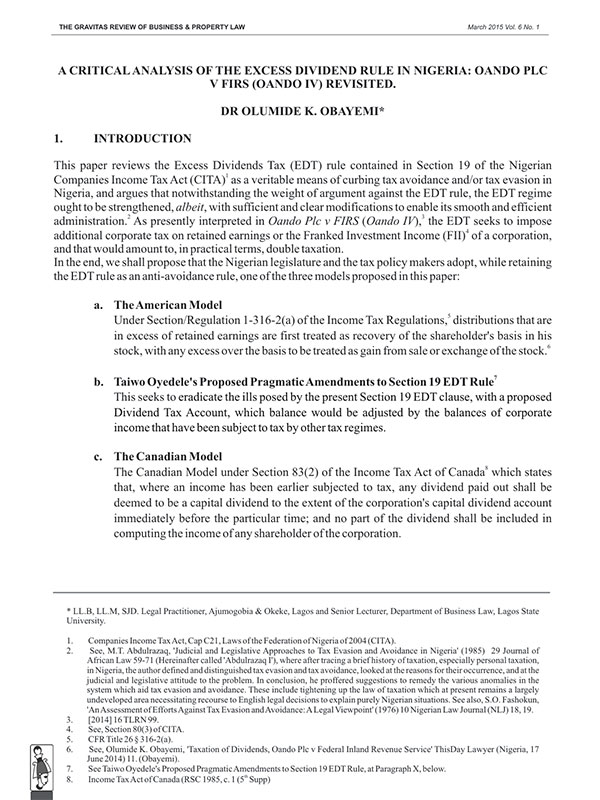
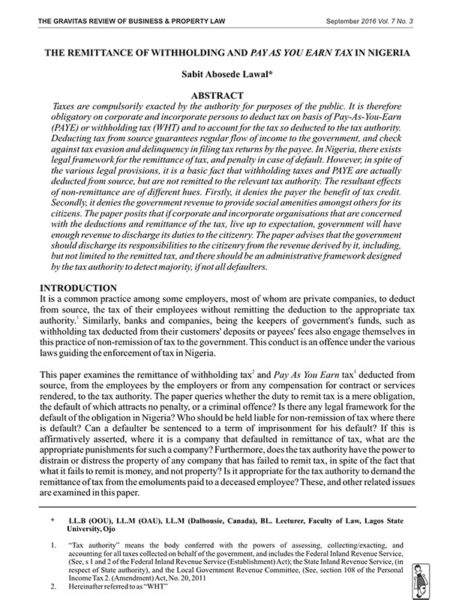
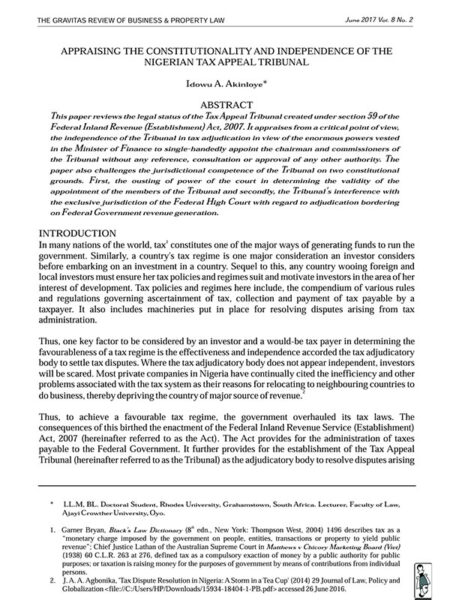
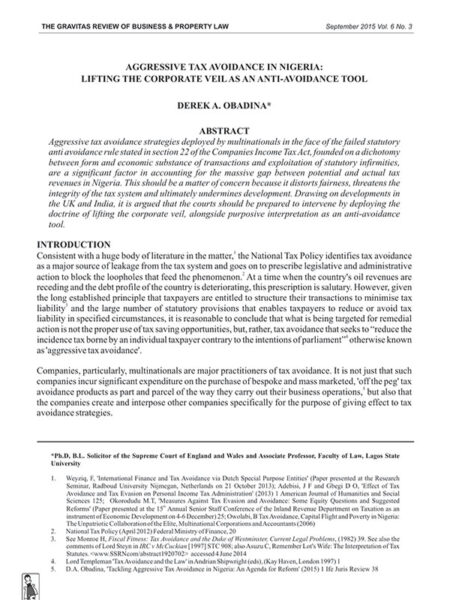
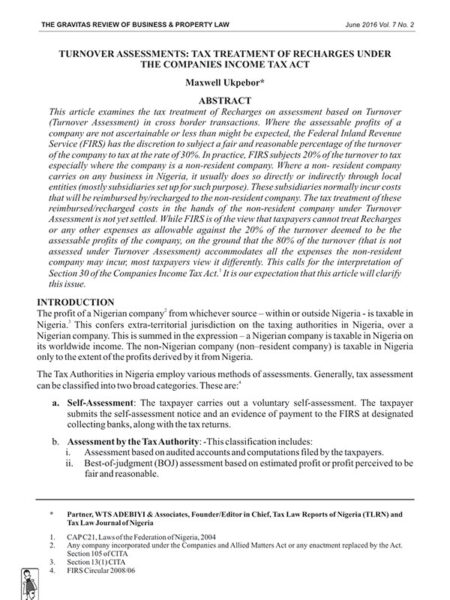


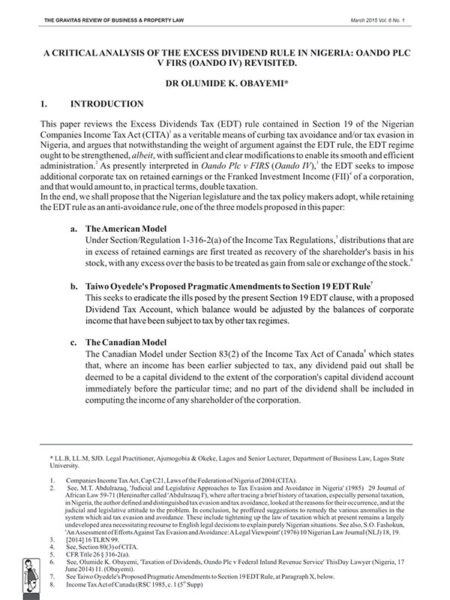
Reviews
There are no reviews yet.